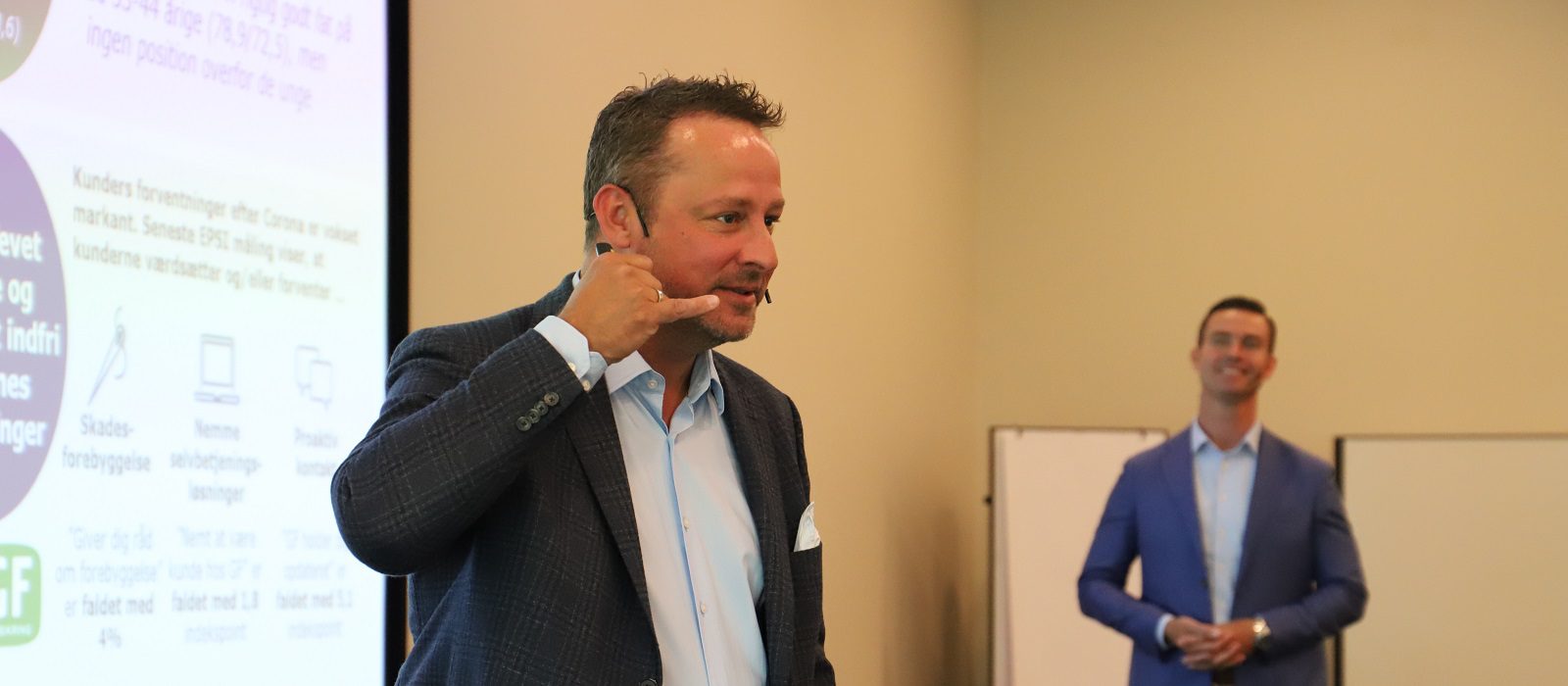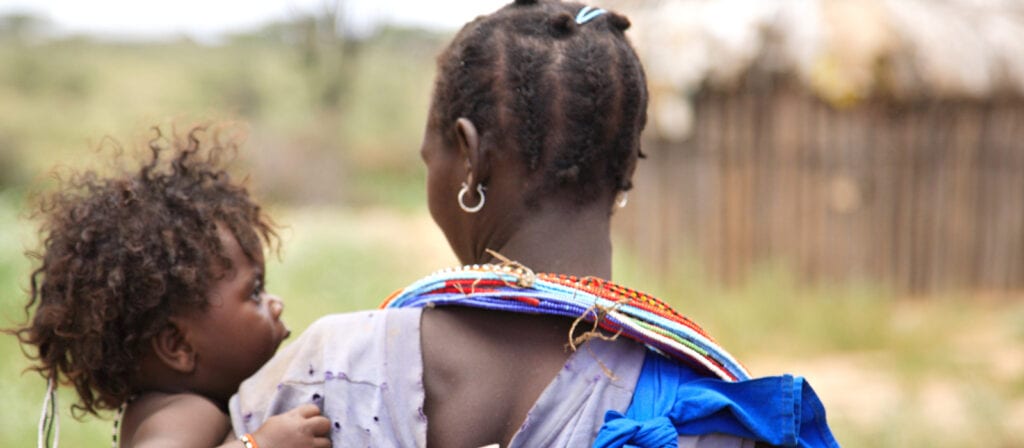This guest blog from Elly Ploumen, Group HR Director at Achmea is based on an interview published in the magazine Visie – this time with a focus on HR – from Dutch insurance organisation VNAB. In the blog, Elly explains how Achmea let go of the organisation’s familiar assessment and reward structure and how talent, performance and development became central to how the organisation now retains talent and increases people’s ability to learn and enjoy their work. We would like to thank Elly and VNAB for their permission to share this blog with ICMIF members here.
Since 2019, Achmea has been using a new way of performance management. The traditional appraisal and remuneration structure was outdated and now talent, development and performance are central to what we call our TOP* programme. As an insurer you want to avoid risks, but I think it’s great that we dared to let go of the familiar system.
The world around us is changing rapidly. This also affects our work. In 2017, we noticed that the performance appraisal and remuneration structure that we were using no longer suited us. Using that method, employees agreed upon targets with their supervisor at the beginning of the year, an evaluation was carried out halfway through the year and an assessment followed at the end of the year. But by then, we already had agile teams that were delivering short-cycle projects for example. Therefore, the agreements made with the employees at the beginning of the year were often outdated after a few months.
Frustrations
There was a second reason to question the existing structure. Research shows that 70% of people think they are doing better compared to others, while 70% of employees actually ‘only’ receive a ‘normal to good’ appraisal. By definition, this leads to dissatisfaction for a large number of people and for those of us working in HR too. The performance appraisals that managers and their employees carried out at the end of the year more often than not resulted in some form of frustration. Linking potential salary increases to the assessments even increased the focus on the score, so that many employees only remembered the assessment score itself and not the dialogue that took place around their performance.
And so, my HR colleagues and I went in search of an alternative. One where the dialogue with employees about their development and performance was no longer linked to the salary and also matched the constant changes in the work. As a company you have to be organised in such a way that you can adapt to changes. So, we need employees with great adaptability. One person picks up changes faster and easier than the other, but we have experienced first-hand in recent months that anyone can adapt. In mid-March, we decided overnight that we all had to work from home, because of the coronavirus pandemic. It was really great that we could take that decision to try to keep our employees safe and everyone did adapt to the change.
Since 2017, a number of pilots with regards to a new approach of performance appraisal have been carried out in different teams. The Achmea Works Council has played an important role in this and the unions were also involved. The TOP programme, which stands for Talent, Development and Performance, was introduced at the beginning of 2019. With the programme we want to increase performance, learning ability and job satisfaction. Within these three objectives, we formulated six frameworks that have emerged as a common thread from the pilots. Each team was allowed to determine how they were going to achieve the goals, in line with the frameworks and their own development plans. But it could not be postponed, and TOP is not without obligation…
The six frameworks are:
- TOP is a short-cycle dialogue between all parties involved.
- Employees have own control of the performance and development objectives and the process.
- At least once a year a reflection dialogue on development and performance takes place.
- We look ahead and focus on talent instead of shortcomings.
- Each team chooses their best way of giving and receiving feedback that fits with their ways of working.
- The manager has a coaching role.
To explain our frameworks a bit more, we consider self-direction and self-reflection among employees to be very important. The supervisor at first sets the direction and then the individual employee discusses his or her personal contribution to the objectives, both with colleagues and with his or her supervisor. These conversations ideally take place several times a year, in the agile teams that work in short work cycles or “sprints” almost every six weeks. With a self-reflection, the employee indicates what he or she has achieved and learned and then discusses this with his or her manager. The role of our managers in the TOP programme is much more coaching than directing.”
Talent and feedback
We honour the principle that every person has talent and we focus on a person’s qualities. We do expect from our employees that they are well aware of their talents and that they are motivated to further develop their talents. Thanks to the TOP programme people know they can further develop their talent by following training courses, trying out new things and skills, keeping up to date with their profession and learning from each other’s experiences.
In addition, giving and receiving feedback within the TOP programme is essential. The teams are free to choose the way in which that happens. We receive very positive reactions from within our organisation. Because there are no longer any salary consequences attached to the feedback process, more and more valuable feedback is given than ever before.
Despite everyone being forced to work from home due to coronavirus, we have been able to ensure that the feedback process has continued in recent months. Previously, I always thought that a physical meeting with a person was necessary to give feedback, but it turns out that it can be done online through a virtual (face-to-face) meeting. Personally, I have had many great catch-up conversations whilst walking with my colleagues. That is going so well that I will continue with it when we can return to the office.
DO!
With the DO! Programme (DOEN in Dutch), Achmea supports its employees so that they can master the new way of learning, performing and evaluating through all kinds of tools. There are two mandatory training courses for managers: the manager as ‘an individual coach’ and the manager as ‘a team coach’. In addition, everyone can make use of all kinds of training courses, workshops and short interventions, experiences are shared via the intranet and DO! programme ambassadors help to give feedback. I am proud to say that at the beginning of this year, 3,000 employees had registered for DO!, a large number of whom are also now ambassadors.
Motivation
I am very pleased that salary discussions are now separated from assessments. Research shows that extra financial reward does not lead to lasting extra motivation. The classic appraisal interview was not motivating, everyone was done with it. But quitting was also quite exciting. As an insurer you want to avoid risks, but I am proud of the fact that we dared to let go of the trusted system.
Achmea currently works with fixed salary growth steps, a bonus is only awarded for exceptional performance. We have a fair package in terms of employment with decent pay. Employees who have achieved something special now receive appreciation and recognition in other ways. Giving a compliment or a presentation at a conference are, for example, ways to give that recognition. In addition, some teams have a “top employee” of the week award and positive customer reactions are posted on our intranet.
Favourite employer
In 2019, Achmea was named the favourite employer in the insurance sector by the Intermediair Image Survey among Dutch highly educated people. I don’t know whether the TOP programme influenced this result. I am convinced, however, that TOP is a perfect match for Achmea’s employment position. We are not a hierarchical organisation, but believe in coaching and encouraging leadership, where people come first.
The first results of the TOP programme confirm our belief that the choices we made last year were the right ones. The frustration around the appraisals has gone. Last year the new method with standardised salary increases went smoothly. And in the engagement surveys that we conduct among employees every three months, the scores for performance, learning and job satisfaction have increased since the beginning of 2019.
* TOP stands for Talent, Ontwikkelen en Presteren in Dutch and, in English, Talent, Development and Performance
Interview source: Martin Veldhuizen for the Dutch VNAB (Vereniging Nederlandse Assurantie Beurs’)






